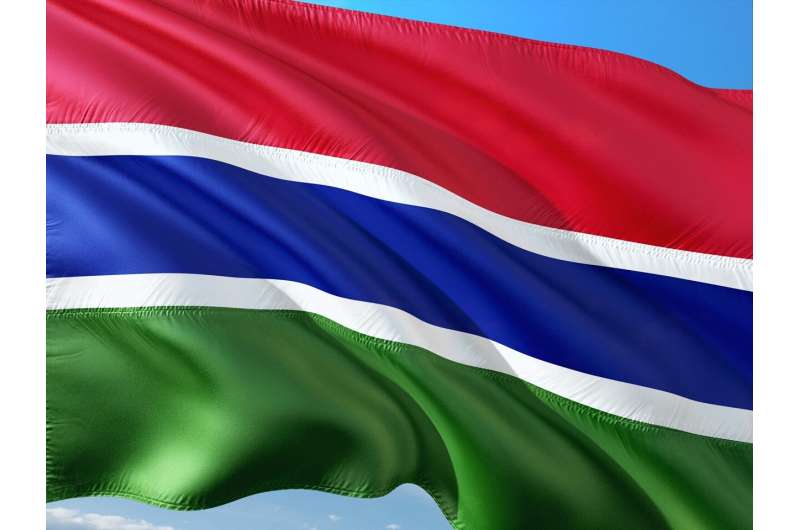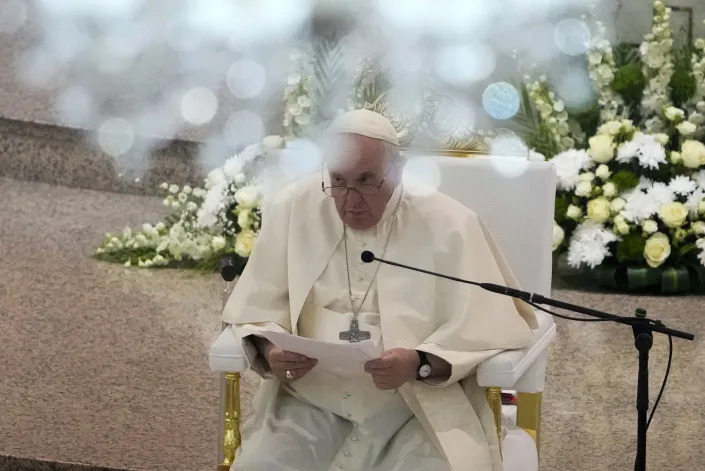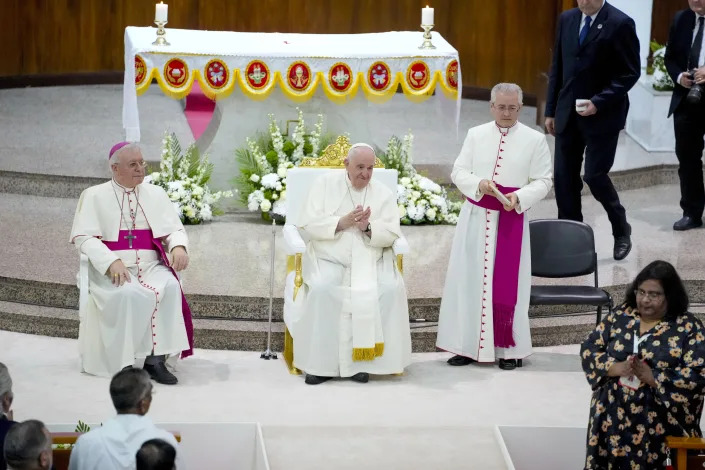"It was a way for me to kind of give hope to women living with FGM, to know that there's something you can do to change your life," Habibata Ouarme says
Elisabetta Bianchini
Thu, March 9, 2023
African-Canadian women are breaking taboos around female sexuality in the documentary Koromousso: Big Sister (part of the Human Rights Watch Canada Film Festival), which follows three women who are overcoming the trauma of female genital mutilation (FGM).
"Genital mutilation and sexuality are still very taboo," Habibata Ouarme says in the film. "We need to draw attention to the issue specifically."
Ouarme leads us through the story on screen and behind-the-scenes as a co-director of the film as well, alongside Jim Donovan. Ouarme was subjected to FGM and in Koromousso: Big Sister, we see her supporting other women navigate the reconstructive surgery she went through, particularly a woman named Safieta Sawadogo.
“I wanted to do the surgery, but I couldn't find the surgery,” Ouarme told Yahoo Canada. “I had to go to San Francisco to do it.”
“So after that, I decided that I wanted to tell my story ... and also, it was a way for me to kind of give hope to women living with FGM, to know that there's something you can do to change your life. ... I want women to have the option to have the surgery, or not."
For Donovan, he said he didn't know anything about FGM until he meet Ouarme, and that's how he learned about it and ultimately decided it was something he wanted to explore in a film.
“It became clear that [Habibata] would need to be in the film and not just behind the camera because the idea of the film is she's the big sister to Safieta, who wants to change your life at age 42,” Donovan said.
“When the camera was not rolling, we'd be talking about, what do we need to do and how do we continue to tell the story."
KOROMOUSSO: Big Sister from filmmakers Habibata Ouarme and Jim Donovan
'This is one issue where progress needs to be made'
In Koromousso: Big Sister Sawadogo, under the guidance and support of Ouarme, goes through her journey of reconstructive surgery. It highlights the barriers to getting this surgery, including having to leave Canada, the cost, and the loss of paid working time for the surgery and recovery. Additionally, the film highlights the lack of resources there are in Canada when someone has gone through FGM, or has had reconstructive surgery.
As Ontario gynaecologist and obstetrician, Dr. Angela Deane, indicates in the documentary, there needs to be more expertise domestically on this reconstructive surgery. Canada lacks trained personnel and we don't have established funding to support wholistic care if someone identifies that they have been subjected to FGM.
“Canada presents itself as a sort of flag bearer in terms of liberal democracies and sort of beacons of hope for the world, in terms of social justice and all this,” Donovan said. “Well, this is one issue where progress needs to be made.”
“You allow people into your country as immigrants, you accept them into the family, therefore you have to start caring for them as completely as possible. … For the first three years that we were working on this film, it was impossible to find anybody in the health system that would have a straightforward answer in terms of how can we get help."
KOROMOUSSO: Big Sister from filmmakers Habibata Ouarme and Jim Donovan
'It's not just cultural. It's human. It's pain.'
Koromousso: Big Sister features women who are incredibly open and honest about the long lasting emotional effects of FGM, and how a reconstructive surgery can help to re-build their self-esteem and feel in control of their own bodies.
“I wanted to say how I felt when I had my surgery because for me it was like, … OK you took something for me,” Ouarme said. "At the end I know I needed to have my surgery to kind of have a complete experience."
"The other part was, ... I want women to have a safe space where they can talk about FGM. ... When you go to the hospital, the person you are seeing has to know what it is, at least. Often what I hear for women is that I went to see the gynaecologist and he said, ... 'I don't know what to do with it.' ... We need to change the way we talk about FGM when we have someone in front of us. It's not just cultural. It's human. It's pain."
Ultimately, Ouarme hopes that this movie gives hope to women who have these experiences, and she hopes this compels people to have more open conversations about sexuality.
“I think we want to open discussions about sexuality, about women’s bodies, women loving themselves, giving opportunity to women to have better access to healthcare," she said. "If you know somebody who is going through FGM, any kind of sexual issue, help them talk about it. The taboo is killing women.”
“I know in 2023 there's a lot out there that you can spend your time watching and it's a challenge for a film like this to be seen,” Donovan added. “If you see the film and you like it, please talk about it. Please spread it.”
“It's hard to find an audience and I honestly would love for this film to be seen as much as possible in the African diaspora because those women have tremendous power to affect change in the continent. So hopefully, it starts a discussion, and that's my hope for the film.”
KOROMOUSSO: Big Sister (Trailer 01m42s) from NFB/marketing on Vimeo.
The Human Rights Watch Canada Film Festival runs from March 8 to March 12 in-person at the Hot Docs Ted Rogers Cinema, and March 13 to March 19 on Hot Docs digital platform. All screenings are free.

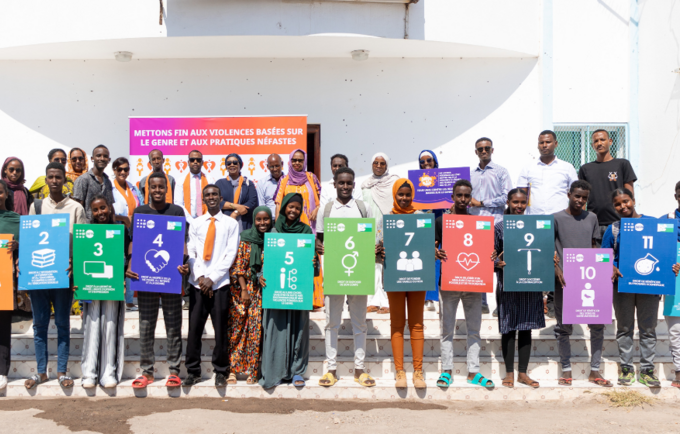
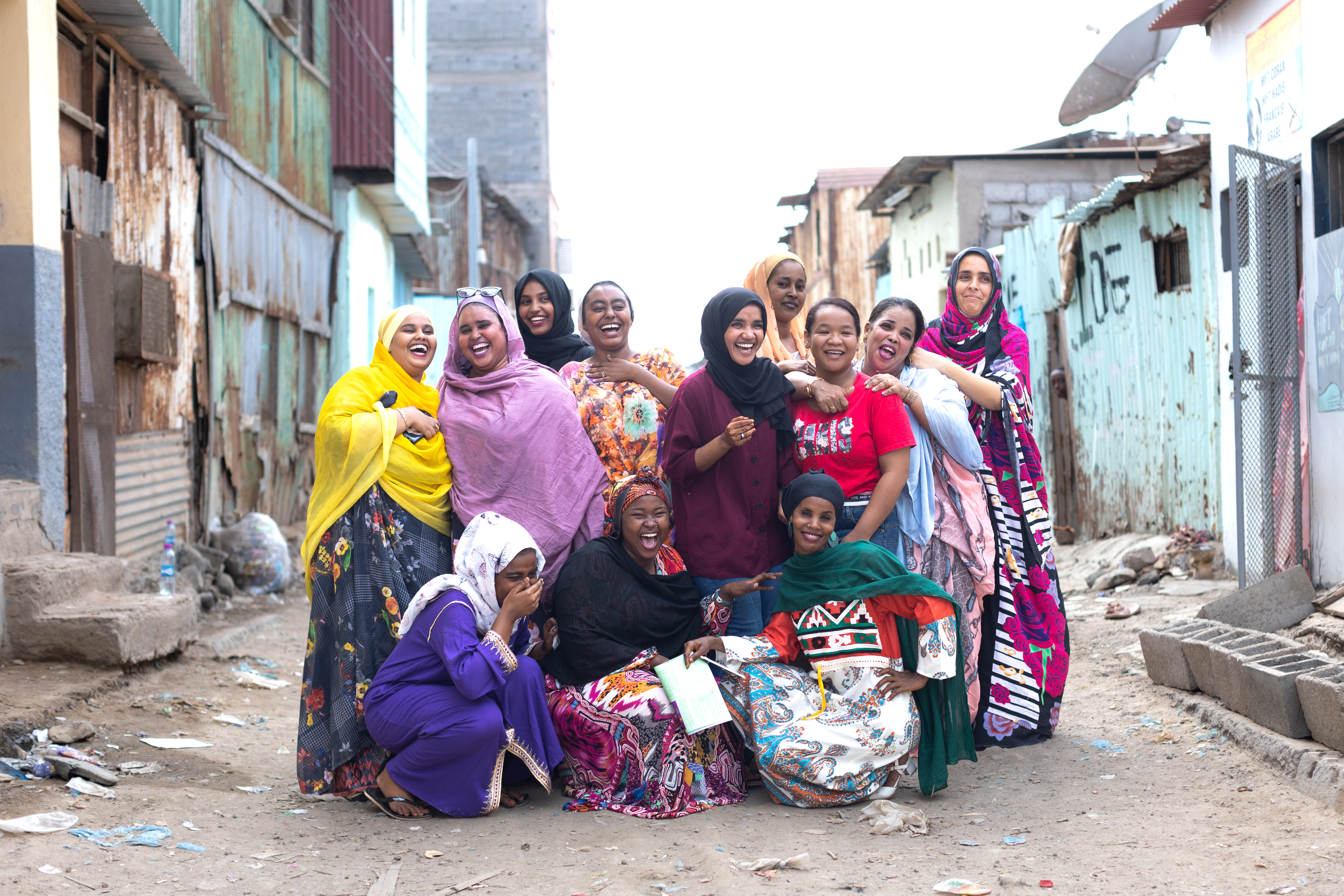
_1.webp)
